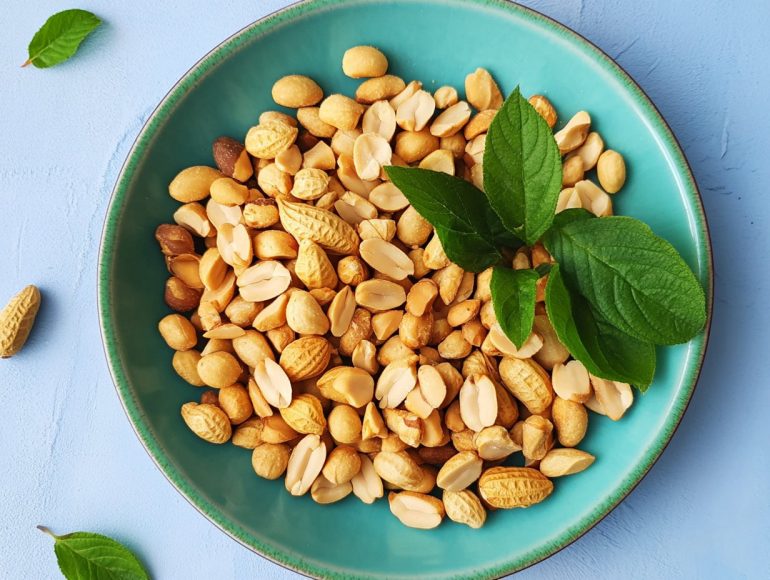Are peanuts as healthy as you think? The benefits and downsides
Peanuts, classified as legumes, offer numerous health benefits including heart health, blood sugar control, and weight management support. They are rich in antioxidants and essential nutrients like fiber and protein. Peanuts are environmentally sustainable, requiring less water than other nuts and improving soil quality. However, excessive consumption can lead to weight gain and kidney issues.
Peanuts have maintained their position as a kitchen staple, particularly in the form of peanut butter, even as other nuts like almonds and cashews have gained popularity in recent years. Unlike tree nuts such as almonds, walnuts, and pistachios, peanuts grow underground, classifying them as legumes. Peanuts, despite being technically legumes, are nutrient-dense foods offering significant health advantages, including heart health benefits, blood sugar control, and weight management support, while also being more environmentally sustainable than other nuts. Let us know if peanuts are as healthy as you think.
Nutritional elements in peanuts
A one-ounce serving of raw, unsalted peanuts contains 160 calories, 5g total carbohydrates, 2.4g fiber, 7g protein, 14g total fat, 3mg sodium, 68mcg folate, 49mg magnesium, 196mg potassium, and 0.7mg iron. The roasting process increases fat content by approximately 0.3 grams per serving. Salted peanuts can contain over 100 mg of sodium per serving, which is significant considering the 2020-2025 Dietary Guidelines for Americans recommend limiting sodium to 2,300 mg daily, or 1,500 mg for those with high blood pressure or heart disease.
Research has identified peanuts as “functional food” due to their antioxidant content, including phenolic acids and flavonoids, which are also found in green and black teas, apples, red wine, and soybeans. Peanut skins contain particularly high levels of antioxidant and anti-inflammatory compounds. Studies have linked nut consumption to reduced cardiovascular disease risk in both men and women and lower diabetes risk in women.
Here are some simple benefits of peanuts
Lower the cholesterol
Peanuts offer heart health benefits with their mix of soluble and insoluble fiber, helping reduce LDL cholesterol. Rich in niacin (vitamin B3), they also support proper heart function, promoting overall cardiovascular well-being when consumed as part of a balanced diet.
Protects the heart
A scientific review found that consuming about 1.5 ounces of peanuts daily for 12 weeks helped reduce blood pressure, cholesterol, and triglyceride levels. The antioxidants in peanuts also demonstrate anti-inflammatory effects that may lower coronary heart disease risk.
Reduces diabetes risk
Studies indicate that nuts, including peanuts, can help reduce diabetes risk and improve outcomes for those with existing diabetes. A review specifically found that peanut butter consumption was inversely associated with Type 2 diabetes development. The beneficial effects on blood sugar control are attributed to peanuts’ nutrient composition, including healthy fats, fiber, beneficial polyphenols, and minerals like magnesium and selenium.
Great for the environment
From an environmental perspective, peanuts require significantly less water to grow compared to other nuts. Growing one ounce of peanuts needs only 3.2 gallons of water, while almonds require 28.7 gallons per ounce. Peanuts also contribute to soil health as nitrogen-fixing plants, taking nitrogen from the atmosphere and returning it to the soil for other plants to use as fuel.
Widely available
As the least expensive nut option with widespread availability and minimal environmental impact, peanuts represent one of the most sustainable nut choices available to consumers.
Can peanuts cause weight gain?
Despite their caloric content, peanuts prove beneficial for weight management. Their combination of protein, fiber, and healthy fats promotes satiety between meals, potentially preventing overeating. Research has shown that consuming approximately one ounce of peanuts before two daily meals while following an energy-restricted diet led to weight loss comparable to a low-fat diet. Additionally, participants experienced reduced blood pressure.
Weight gain
Excessive consumption of peanuts or peanut butter without mindful portion control can lead to weight gain, especially if not balanced with a nutritious diet and regular exercise. Their high-calorie content makes moderation essential to maintaining a healthy weight while still benefiting from their nutritional value.
Could damage the kidneys
Oxalates are naturally occurring substances found in peanuts that have the potential to crystallize and cause kidney stones in those who are vulnerable. Peanuts and other foods high in oxalate may need to be consumed in moderation by those who are prone to kidney stones.
If you maintain a peanut consumption limit, eating peanuts regularly offers multiple health benefits while maintaining a smaller environmental footprint compared to other nuts.

